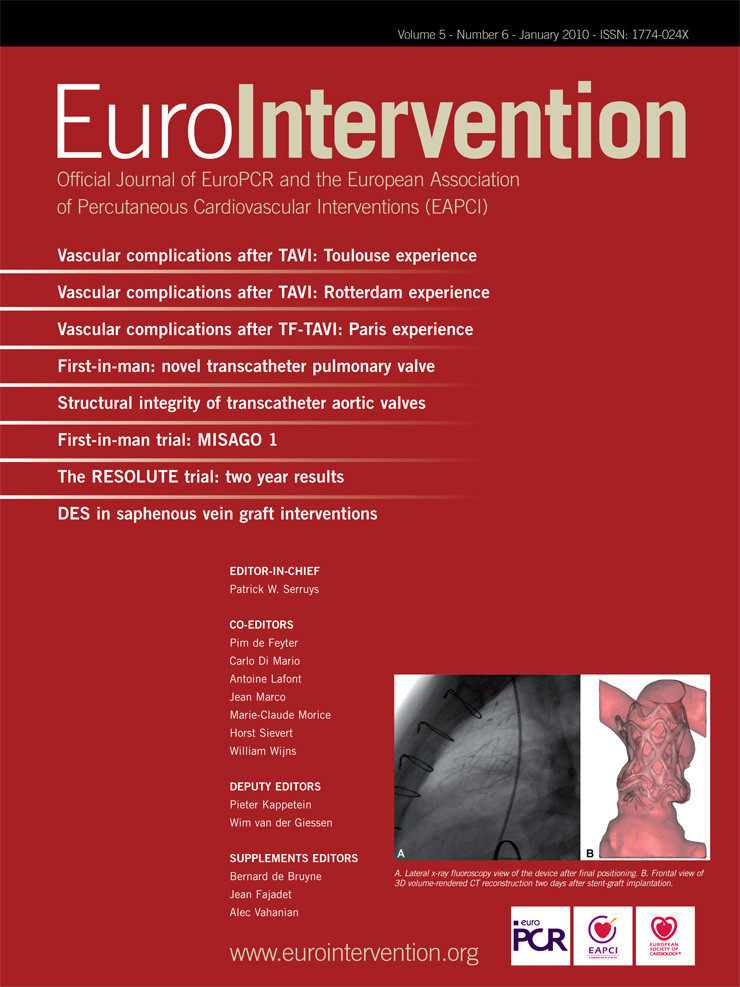Dear Editor,
The interesting paper by Hälg et al1 adds further data to the complex issues related to the optimal management of patients requiring oral anticoagulation (OAC) who undergo coronary artery stent implantation. The available evidence to guide management is limited as well as of poor quality, and current recommendations are essentially derived from experts’ consensus2-4. In summary, the triple therapy of OAC, aspirin and clopidogrel is recommended as the most effective antithrombotic combination for the prevention of both thromboembolism and stent thrombosis, although a relevant incidence of major bleeding, which increases as treatment prolongs, is to be expected during the follow-up period2,3. Also, the implantation of drug eluting stents should be avoided, because of the prolonged need for clopidogrel (and therefore triple therapy) with such stents2,3.
The data presented by Hälg et al are consistent with this. Nonetheless, triple therapy of OAC, aspirin and clopidogrel cannot be completely guilty of the significantly higher incidence of late bleeding. Only four out of the eight OAC patients experiencing late bleeding were on triple therapy at the time of the event, whereas the remaining four were receiving the combination of OAC and aspirin. On univariate and multivariate analysis, it is the OAC treatment in itself, rather than its association with either one or two antiplatelet agents, which was predictive of late haemorrhagic complications. Apart from exposing patients to wide fluctuation, including overshoots, of the intensity of anticoagulation (as shown by INR values widely above the therapeutic range in two of the four patients on triple therapy and in one of the four patients on the combination of OAC and aspirin who experienced a late bleeding event), an indication for OAC may just identify a subgroup of more fragile patients being at higher risk of both thromboembolic and haemorrhagic complications. Indeed, both thromboembolism and bleeding appear to share many risk factors in common5.
While having confirmed that early (i.e., in-hospital) bleeding is relevant and related more to procedural variables, such as vascular approach and glycoprotein IIb/IIIa administration, rather than to concurrent OAC treatment, Hälg et al still fail to answer the question whether or not prolonged triple therapy is indeed associated with an increase in major bleeding, and whether or not drug eluting stents should ever be used in this patient subset.
Large prospective studies, where treatment durations and ongoing antithrombotic therapies at the time of either bleeding or thromboembolic complications are recorded, need to be carried out. The Atrial Fibrillation and Coronary Artery Stenting (AFCAS) Registry, which is currently ongoing in several European countries, where 1,000 patients with atrial fibrillation undergoing coronary stent implantation will be prospectively enrolled, may help in answering, among several others, these important questions.

